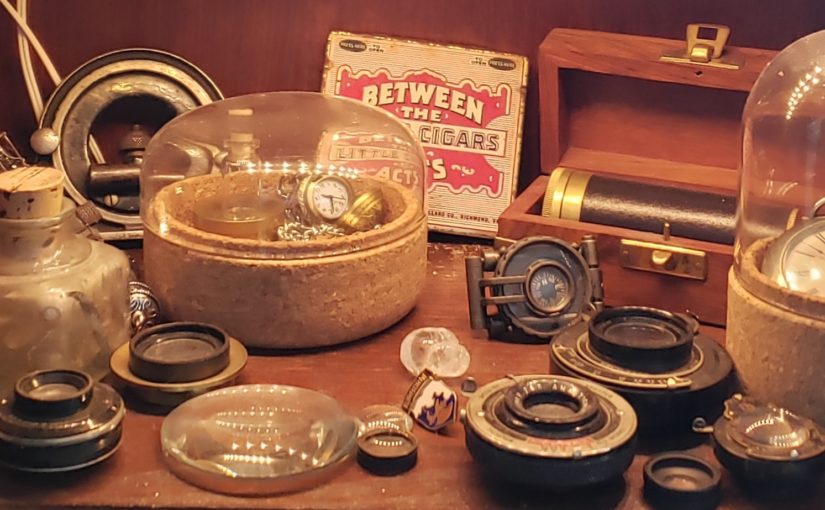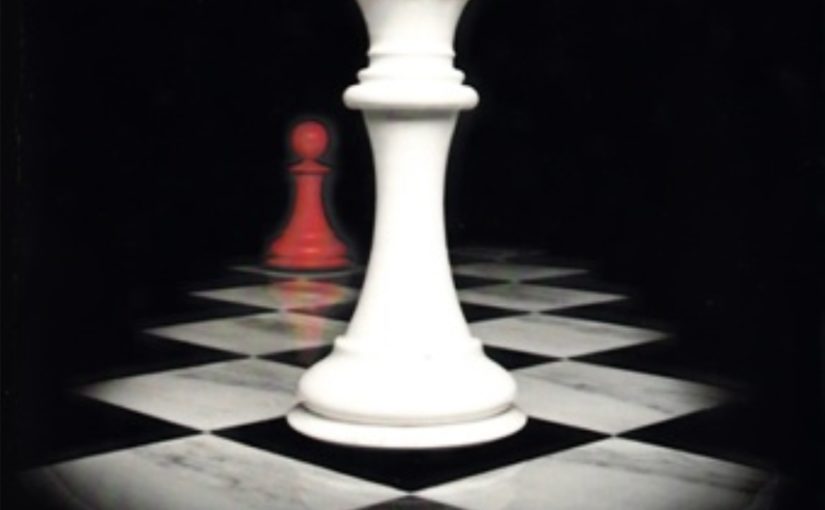I received my copy from NetGalley.com and Harlequin Teen. Thanks.
Because I might as well use my minor in folklore for something, I’ll begin my review of Grim, a collection of young adult short stories, with a little bit of pedantry about the fairy tale. Broadly speaking, there’s two kinds of fairy tale: the Märchen, which are orally transmitted folk tales with no specific origin and wide variation, and the literary fairy tales, which are written by a single person. Some of the distinction can be a little mushy, like with the large and glorious oral and literary history of the Arthurian legend, which has a lot of switch-backs and cross-pollination between literary and oral history.
Sometimes it’s less so, like when you’re dealing with the works of Hans Christian Anderson, Charles Perrault, or Gabrielle-Suzanne Barbot de Villeneuve, who wrote The Snow Queen, Puss in Boots, and Beauty & The Beast, respectively (and among other things.) Though these stories use traditional folkloric motifs, they were written stories, often designed for court or salon readerships, like de Villeneuve, or children, like Andersen and Perrault. Andersen hat-tipped Dickens in The Little Match Girl, and was hat-tipped in turn by C.S. Lewis in the character of the Snow Queen in Narnia. (And this second has become her most famous incarnation. The Turkish Delight, I’m given to understand, was Lewis’s doing.) The tales are more part of a literary tradition than an oral one.
It really shows in something like Perrault’s Puss in Boots, which is a pretty classic clever servant story (like Mozart’s Marriage of Figaro which got him in such hot water). Certainly Perrault is using some clever cat folklores – which lends some dissonance when the the immoral Puss is used to prop the moral of industry and sticktoitiveness – but the boots, the gormless third son, the instructive tone are new, literary elements. The essential amorality of the folk motifs makes the whole thing kinda funny though, no matter how many admonishments of industry are included.
Our booted feline friend was part of some of the earliest editions of what eventually became Mother Goose, an editorial invention for publishing instructive tales for children in the growing middle class in England, set alongside other sanitized (and anglicized) Märchen. Amusingly, concern-trolling has been around since the invention of children’s literature. Observe (from the wikis):
The renowned illustrator of Dickens’ novels and stories, George Cruikshank, was shocked that parents would allow their children to read “Puss in Boots” and declared: “As it stood the tale was a succession of successful falsehoods—a clever lesson in lying!—a system of imposture rewarded with the greatest worldly advantages.”
Perrault shines a folk tale into something suitable for children, but certain things will not out.
Folk tales are often violent, sexual and political. The frog is transforms into a prince not because the princess kisses him, but because she throws him against the wall. Cinderella’s sisters cut their feet to fit the slipper, and are caught out because of dripping blood. Sleeping Beauty awakens from her slumber when she gives birth to twins, because the prince was charming enough to rape her while unconscious. So.many.people get their eyes pecked out by birds. Folk tales are often not about imparting morals, but about exploring sometimes gruesome economic, political, familial and sexual imbalances through the metaphorical. Folk tales aren’t didactic or instructive, in the strictest sense, while literary stories often are, especially when they are aimed at children.
And if it looks like I’m bagging oral folklore, I’m not. Folk tales like the ones collected by the Brothers Grimm, Lady Gregory (a firm friend of W.B. Yeats) or Andrew Lang (who was also a Homeric scholar) were, often, very much not for children, and can have unnerving elements of horror and the macabre. A lot of these cats had very specific 18th and 19th Century ideas about “the folk” as “noble savages” or specific nationalist agendas. (I’m looking at you, Yeats.) There’s fairly good evidence that even the Grimms, who prided themselves on their impartial collection and transmission, mucked about with the stories they were collecting for whatever purposes. The whole relationship between the oral and literary traditions is pretty complex stuff, well more complex that my opening paragraph implies.
Jesus, my head has really come to a point here. My purpose, if I can find it, was really to talk about the ways the fairy story has been used in oral and literary traditions, and it’s interesting to see these young adult iterations published by Harlequin Teen in the larger tradition of packaging some seriously wicked shit to impart morals to children. There are still a lot of plucky kids, though they seem to have shifted gender from the the lucky son to the Strong Female Protagonist. Love is the answer more often than I remember from Andrew Lang’s Fairy Books or Grimm’s Tales, where marriages often occurred between people just because girls are a prize for lucky boys. Several of the stories here push back at that notion. There’s also more revenge than I remember. Because so many of the oral folk tales are not terribly psychological – young Hans left one day to make his fortune, etc, with no real bother about his internal state – few historical folk tales have the requisite psyche to really pull a gotcha at the end. You can with a short story though; good.
Anyway, at this point I should probably get into the individual stories.
“The Key” by Rachel Hawkins. I liked the writing on this – the main character is one of those world-weary teens I find charming – but it’s not a story so much as a situation. I find this often with writers who are primarily novelists dabbling in the short story form. They write prologues to larger fictions, and then bite them off.
“Figment” by Jeri Smith-Ready. This was one where my general crank level was too high, because there’s really nothing wrong with the story, but it still grated me a little. The characters are drawn with a steady hand, and overall its cute and playful with just enough drama that it’s not too lightweight. I just didn’t like this specific treatment of Puss in Boots, mechanically speaking, because turning that immoral schemer into a plush toy that just wants to be loved just seems wrong.
“The Twelfth Girl” by Malinda Lo. Dark and class conscious take on the Twelve Dancing Princesses with a wonderfully pyrrhic ending. Very good.
“The Raven Princess” by Jon Skovron. The recounting of the Grimm version of the princess who was transformed into a raven and then won by a plucky young man hews close to the original, but does manage to provide a fresh angle and perspective. It felt a little message-y at points – and that’s how you behave like a good person! – but the story does have a kind heart.
“Thinner than Water” by Saundra Mitchell. Resounding props for taking on Donkeyskin or Catskin in a young adult short story. There are a whole bunch of related folk tales about kings attempting (or succeeding) in marrying their daughters and how the girls trick their way out, but the central horror of incest and sexual assault is serious shit. Mitchell’s story vividly relates the way the girl is isolated and made complicit in her abuse, and doesn’t flinch. Maybe you get out, but you probably won’t get out clean, and you’re not the only one.
“Before the Rose Bloomed: A Retelling of the Snow Queen” by Ellen Hopkins. Reeeally straightforward retelling which isn’t bad, but also doesn’t add anything. Felt plodding.
“Beast/Beast” by Tessa Gratton. Very claustrophobic take on the Beauty & the Beast story, with one of the more interesting beasts I’ve seen in while. He’s like a golem sewn out of all manner of animals and plants and…stuff. The writing is very good, and while I’m troubled by certain things, they’re mostly the sorts of things I’m always troubled by in Beauty & the Beast stories. I’m still turning over that ending; a good sign.
“The Brothers Piggett” by Julie Kagawa. Men are pigs! hahaha. But seriously, this had just a brutal snap to it, which surprised me from a retelling of the Three Little Pigs. No girl is a reward for a boy when he acts like a decent person, and he doesn’t get to act like an indecent person when she is not rewarded to him. Well played.
“Untethered” by Sonia Gensler. The Little Shroud, itself, is somewhat inert and stubby, so a story based on it suffers from that brevity. This slid perspectives in a cool way, but it felt a little stagy to me. Well drawn relationships though.
“Better” by Shaun David Hutchinson. The Pied Piper of Hamelin…in space! I kid, I kid. I’m a sucker for generation ships and clone golems though, and the scifi setting was just aces. A nasty little piece of work, and while I’m rooting for our heroes, I’m also terrified of them.
“Light It Up” by Kimberly Derting. This retelling of Hansel & Gretel felt like it didn’t do enough work updating the premise to the present day – it was too literal – but it was fine, I guess. But cannibalism is hilarious, no matter how you slice it. (Get it?? Hahaha, I kill me.)
“Sharper Than a Serpent’s Tongue” by Christine Johnson. Again, the fairy tale motif needed to be better updated, and I think the attempt at a reversal was botched a little, though it might just be my weariness with the idea that “sometimes a curse can be a blessing!” The central part about how some parents should not be honored because they’re terrible parents is totally legit though.
“Real Boy” by Claudia Gray. Robot love story! There was something very old school Asimov about this – the rules! – but it functioned as a self-contained world, which is a nice bit of parallelism. It almost would have been better if we didn’t see the reveal at the end.
“Skin Trade” by Myra McEntire. Yeah, I don’t know. I can see where this was going, I just think it didn’t get there. Plus it was just lurid. I like lurid, even lurid for its own ends, but this felt forced. And again, not enough thought went into the update.
“Beauty and the Chad” by Sarah Rees Brennan. I really appreciate the light-hearted anachronism and general goofing, I just think I’m too damn old for this story. The beast in this retelling is a frat-bro, and frat-bros are the very worst for me. I completely recognize this is my own hang up, and frat-bros notwithstanding, this story was cute and funny, the sentient furniture especially.
“The Pink” by Amanda Hocking. Another reeaaallly straightforward retelling with very little heat or danger. The names were way dumb too.
“Sell Out” by Jackson Pearce. The premise was updated well, and I think it had more friction than a lot of the more straightforward retellings, but it also just didn’t do it for me. Age, again, may be a factor, as I bristle about the term “sell out” used by children who have zero idea. I’d like to see the sequel when the hammer falls, kiddo, because fall it will. (Somebody top off mommy’s drink; she’s being a crank again.)
In sum, a perfectly cromulent little collection, with nothing that overwowed me – “Beast/Beast” and “Thinner Than Water” came close – but also very few straight up failures. I have a couple of these writers pinned as interesting, and I’ll be sure to scoop something up next it comes to my attention. There are also a couple who have now been solidly cemented as not to my taste. Though I’m loathe to pretend I can predict what a teenager might think of this, I imagine someone less old and cranky will cotton to some of these stories better than I. Good job, demographics.

.jpg)
